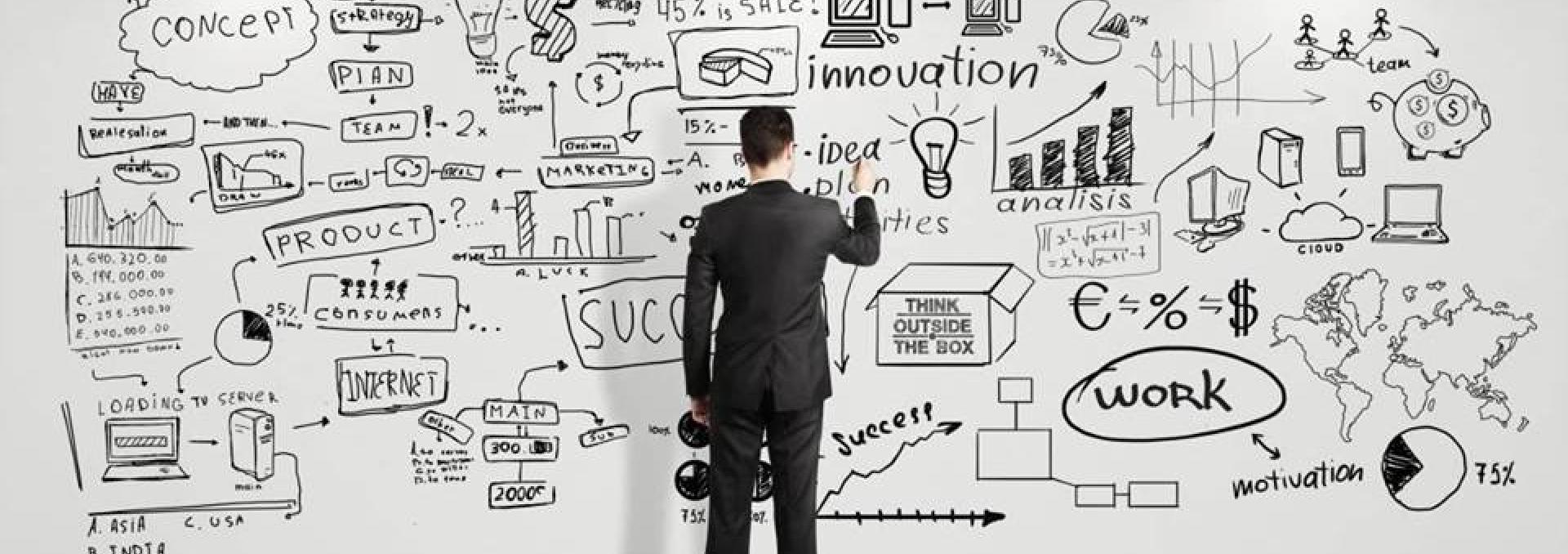The clearing and freight forwarding business is one of the highest paid in Nigeria, and anyone with a small amount of capital can start it as an individual agent or a company.
When considering launching a clearing and forwarding business, keep in mind that there are numerous requirements to be completed before a transaction can be completed.
To maintain effective operational activities, you must study everything there is to know about the business. Because the clearing and forwarding business is not something that can be entered into without sufficient planning and training, anyone interested in it will want direction. This guide has taken the time to compile all of the information you will need to succeed in this business.
What is Clearing and Forwarding?
Clearing and forwarding is a logistics service that involves moving items from one location to another using various modes of transportation while also managing customs clearance and documentation.
Who is a Clearing and Forwarding Agent?
Clearing and forwarding agencies are intermediaries who manage the logistics, customs clearance, and documentation required for import and export of commodities across international borders. They are critical components of the supply chain because they ensure that commodities are transported securely and effectively.
What is the Clearing and Forwarding Business in Nigeria About?
Clearing and forwarding, commonly known as freight forwarding, is the coordination and administration of commodities shipment from one location to another. It is an important part of international trade that includes actions such as customs clearance, documentation, transportation, and storage of goods.
Clearing and forwarding is a lucrative and developing profession in Nigeria and Africa, as the continent is quickly becoming a hub for international trade. According to the International Trade Centre (2018), African countries’ trade in services has consistently increased, with transportation services accounting for 37% of total trade in services. According to the survey, Nigeria is one of the top three service exporters in Africa, with transportation services playing a key role.
Benefits of the Clearing and Forwarding Business in Nigeria
Some of the advantages of starting this business in Nigeria are as follows:
- Job creation: The Clearing and Forwarding Business produces jobs in the logistics business, which helps the economy thrive.
- Foreign exchange earnings: By facilitating the export of goods, the business contributes to the country’s foreign exchange earnings.
- Improved trade: The Clearing and Forwarding Business facilitates trade and increases supply chain efficiency.
- Increased government revenue: The business generates government money through taxes, import and export duties, and other fees.
- Improved infrastructure: Clearing and Forwarding Business promotes the development of infrastructure, like as highways, ports, and warehouses, to serve the logistics business.
- Increased productivity: By offering dependable logistics services, the business contributes to increased productivity in the manufacturing sector.
- Efficient delivery of goods: Clearing and Forwarding Business guarantees that goods are delivered on time, which reduces the expense of maintaining inventory.
- Reach global markets: By offering effective logistical services, the business helps Nigerian and African producers to reach worldwide markets.
How to Start The Clearing and Forwarding Business in Nigeria: Step-By-Step Guide
Starting a Clearing and Forwarding business in Nigeria necessitates careful preparation and execution. Here’s a step-by-step guide to getting started:
#1. Perform Market Research
To discover a market gap, conduct research on the industry, competitors, laws, and customer needs.
#2. Create a Business Plan
Create a thorough business plan that includes a firm description, market analysis, marketing and sales strategy, financial predictions, and a management and operational structure.
#3. Register Your Company
In Nigeria, register your business with the Corporate Affairs Commission (CAC) or the appropriate regulatory agency in other African countries.
#4. Obtain all necessary licenses and permits
Obtain the relevant licenses and permits from government authorities such as the Nigeria Customs Service (NCS) and the Nigerian Ports Authority (NPA).
5. Ensure Funding
Determine how much capital you’ll need to establish and run your business and then secure it through bank loans or investors.
6. Form Business Relationships
Establish business ties with shipping lines, customs brokers, and other industry stakeholders.
7. Establish an Office
Set up an office space and the necessary infrastructure, such as computers, printers, and internet access.
8. Hire Workers
Employ experienced individuals such as freight forwarders, clearing agents, and administrative staff.
#9. Put Marketing Strategies into Action
Create and implement marketing methods to attract customers and boost awareness, such as advertising, social media, and networking.
#10. Provide Excellent Service
To develop a great reputation and encourage repeat business, provide clients with excellent and efficient services.
Basic Procedures For Clearing And Forwarding Business In Nigeria
As the clearing agent or agency, you are responsible for ensuring that the items are packaged and sent to their final destination. When this is completed, and you have been notified that the consignment arrived safely, you must pay customs tax to ensure that the container is cleared from the port.
Then, you go to the sheds to make sure the products are released by the releasing officer who is in charge of overseeing the release of the goods.
A couple of units are in charge of the goods-releasing procedure. Some of the units engaged in the release process are listed below.
- Custom Investigating unit.
- Tally unit
- Valuation unit
- Enforcement unit
- DMI
- PM provost marshal
- NDLEA
- Police
- Bomb squad
- State security service
Etc…
How Long Does Clearing and in Nigeria Take?
The majority of first-time importers want to know how long it will take to receive imported products at their final destination. If you ask me, the answer to the question of how long is not a simple yes or no. Many factors influence the time it takes for items to be delivered. The distance from the pickup warehouse to the departure port should be calculated from the origin.
You will also examine export customs processing. Customs procedures are simple in today’s technologically updated society. Also, is the import by air or sea?
Is the paperwork in order when you arrive? Is the importer in possession of a Form M, SONCAP, PAAR, and Rotation Number? Also, Is the method for assessing and capturing duty payments in place? Is the importer willing to pay all duties and taxes? What about the terminal and shipping company’s local fees?
To put it succinctly, how long items arrive and are ready for clearance and ultimate delivery is heavily dependent on good planning.
How Much Does It Cost To Clear Goods?
The query should be, “What is the overall cost of clearing goods (specific goods and details) from the port?” What you pay to clear items is as follows:
- Customs duty
- Shipping company local charges
- Container deposit (for containerized goods)
- Terminal handling charges
- Inspection charges by Agencies such as SON, NAFDAC, NESREA, depending on who regulates the goods in question
- Clearance Agency service fee;
Customs clearing agents charge a fee to cover the costs of preparing and completing customs documents. We can work out a bargain on the Clearance Agencies’ fees based on what you wish to clear from the port.
Consider the Cost of Clearing a 40FT Container Carrying Palm Oil Processing.
- The total Customs duty is projected to be NGN4,500,000, depending on the invoice value and what Customs agrees is correct.
- Local shipping business rates are anticipated to be NGN200,000, assuming no demurrage.
- The container deposit price is NGN200,000 for products delivered to the same city as the port, and NGN400 for items delivered to another state.
- Terminal handling expenses/storage charges are expected to be NGN200,000, assuming fast clearance of goods upon arrival.
- Inspection fees for SON-regulated machines start at NGN7,500.
- Clearance service price by the Clearing Agent NGN200,000, depending on the degree of services required and the level of negotiation.
As a result, machinery in a forty-foot container should cost between six and seven million Naira. Please keep in mind that these are only estimations; duty is determined by the true invoice value and Customs’ good judgment.
Business Opportunities in the Clearing and Forwarding Business in Nigeria
This business provides the following business opportunities:
- Import/export commerce: For individuals interested in the import/export trade, the Clearing and Forwarding business in Nigeria and Africa gives a fantastic opportunity. The industry operates as a go-between for exporters and importers, handling shipping logistics and customs clearance.
- Warehousing: The Clearing and Forwarding business also allows you to set up and run warehouses for products awaiting clearance and transit.
- Freight forwarding: Another business possibility in the Clearing and Forwarding industry is freight forwarding. It entails moving items from one location to another, including arranging transportation, filing paperwork, and dealing with customs clearance.
- Customs brokerage: Customs brokerage is the process of facilitating the clearance of goods through customs. This service can be provided by clearing and forwarding companies, generating a business opportunity.
- Supply chain management: Supply chain management is the coordination and administration of commodities and services from their place of origin to their point of consumption. Clients might benefit from this service provided by clearing and forwarding companies.
- Packaging and labeling: Packaging and labeling is another business possibility in the Clearing and Forwarding industry. This includes preparing items for transit and customs clearance by properly packing and labeling them.
- Insurance: Clearing and forwarding businesses can also provide insurance for goods in transit.
Licences Required For Clearing and Forwarding Agents in Nigeria
Some of the licenses and permits required to start and operate a clearing and forwarding business in Nigeria are as follows:
- Registration of Business Name: Before you may start a clearing and forwarding business in Nigeria or Africa, you must first register your business name with the Corporate Affairs Commission (CAC) in Nigeria or the equivalent government body in your nation.
- Tax Identification Number (TIN): You must also obtain a Tax Identification Number (TIN) from the Federal Inland Revenue Service (FIRS) in Nigeria or the applicable tax body in your country.
- Customs Agent License: To work as a customs agent in Nigeria, you must first receive a license from the Nigeria Customs Service (NCS).
- Nigeria Ports Authority Permit: To operate as a clearing and forwarding agent in Nigeria, you must receive a permit from the Nigeria Ports Authority (NPA).
- Association of Nigerian Licensed Customs Agents (ANLCA) License: The Association of Nigerian Licensed Customs Agents (ANLCA) is the umbrella group for all licensed customs agents in Nigeria. To work as a customs agent in Nigeria, you must be a member of ANLCA.
- Terminal Operators License: To work as a terminal operator in Nigeria, you must also receive a license from the proper government body.
- Export License: If you want to engage in export activities, you must first obtain an export license from your country’s proper government agency.
Equipment Used in the Clearing and Forwarding Industry
Here is a list of equipment that can be utilized in Nigeria and Africa for clearing and forwarding:
- Computers: Computers are essential for business management, document handling, and client communication.
- Internet connection: For communication, document sharing, and research, a high-speed internet connection is required.
- Scanners: Scanners are used for document scanning and record digitization.
- Photocopiers: Photocopiers are necessary for making duplicate copies of papers.
- Printers: Printers are devices that print documents, bills, and other data.
- GPS Devices: GPS devices are used to track shipments and provide accurate position information.
- Communication devices: Phones, fax machines, and email are required for communication with clients and suppliers.
- Warehouse Equipment: Forklifts, pallet jacks, and hand trucks are used to move cargo in warehouses.
Is Clearing and Forwarding a Lucrative Business?
Clearing and forwarding business can be quite advantageous to a businessman who wants to make a positive impact on the global market. It can be difficult to find a dependable, trustworthy, and cost-effective clearing and forwarding business. This is due to the highly competitive character of the logistics sector.
How Much Does Clearing and Forwarding Earn in Nigeria?
In 2023, the majority of Clearing and forwarding agents will earn between $25,645 and $75,495 per month. Entry-level Clearing and forwarding agents earn between $26,645 to $61,020 per month. After 5 years of job experience, their monthly salary will range between $24,654 and $55,159.
How Long Does It Take to Learn Clearing and Forwarding?
The Clearing and Forwarding Diploma takes six and a half months part-time or six weeks full-time.
How Much Does It Cost to Clear a Container?
Terminal fees for a 40-foot container are anticipated to be $300,000. Each terminal, like the shipping firm, has slightly different charges than the others. However, the average terminal fee is $200,000. Third, the clearing agency service charge for a 40-foot container is typically 200,000.
What is the Difference Between Freight Forwarding and Clearing and Forwarding?
Freight forwarders and clearing agencies are two important players in your supply chain. A freight forwarder supervises the movement of your cargo from point A to point B, whereas a customs agent clears the way for shipments.
To summarize
The clearing and forwarding business is an essential part of the Nigerian and African economies. It is essential to the import and export of goods because it provides logistical services like customs clearance, shipping, warehousing, and paperwork. The business creates jobs and helps the growth of the economy.
- FORWARD FINANCING: Reviews & Everything You Should Know
- LIST OF THE BEST FREIGHT FORWARDING SERVICES IN 2023
- POS TERMINAL: Definition, Types, Prices & Guide
- Sustainable Shipping Solutions: The Environmental Benefits of Containers
- HOW TO CHANGE YOUR EMAIL: Tips for Changing Your Email






